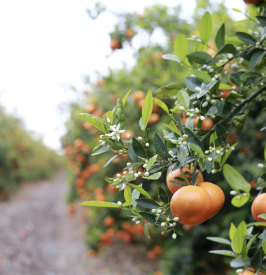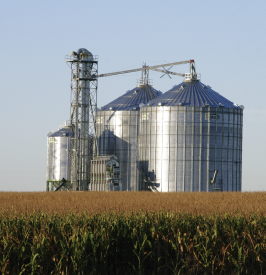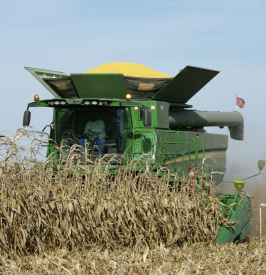The Sun Spot coal mine in Astoria, Illinois, was once an economic engine for the town. From 1962 to 1983, it produced 17.6 million tons of coal and was a major employer in the area.
It also left behind a big mess when it shuttered. Farmland was destroyed or depleted. Wildlife habitat was disrupted. And deep pits were created after miners excavated coal veins.
Fast forward four decades and it’s hard to imagine an ugly “before picture” at Otter Creek farm, which was once a ravaged wasteland but is now dotted with acres of lush corn and soybeans fields among picturesque lakes and wooded areas.
Otter Creek’s reclamation has been more than 15 years in the making. And its sponsor is someone with a keen understanding of Illinois farmland and real estate development projects.
The site’s owner is Paul Pittman, Chairman and CEO of Farmland Partners (FPI), a real estate investment trust that’s publicly traded on the New York Stock Exchange.
Original pieces of the farm, which also includes recreational land, was purchased by Pittman before FPI’s creation and initial public offering. As a legacy property in the Pittman family, it’s not part of the company’s portfolio.
He bought the farm from a local family that got a good start on the reclamation project, and Pittman has since invested his own money and time to continue their work and restore the land to its original beauty.
Years of soil amendments and conservation farming techniques like cover crops and no-till have recharged nutrients and curbed erosion, Pittman said. Some of these same sustainable farming practices are also used by tenants who farm land within FPI’s portfolio.
Less-productive land at Otter Creek was replanted with native switchgrass, trees, and orchards to provide habitat and feed for wildlife. And the mining pits – which looked like long, thin lakes with cliff-like sides once they filled with rainwater – were radically transformed.
Pittman explained: “Those steep banks on the lake are really a problem. They’re not very good for recreation. You can’t even walk down to the side of the lake. If you fall in the lake, you can’t get out. Wildlife can’t get down to the lake. And of course, fish need shallow water and deep water for habitat.”
With the help of a team – and thanks to the efforts of the prior owners – he’s spent years shaving back the banks and raising lake levels to create a more natural environment that supports wildlife and recreation.
Birds, fish, rabbits, deer, and other animals have now returned to Otter Creek. Pittman even lets the fishing team at the local high school use the lakes.
“It’s been a labor of love, but it’s been worth it,” Pittman concluded. “Illinois agriculture has been a huge part of my life. This farm needed to be brought back from the dead, and it can now be enjoyed for years and years to come.”



